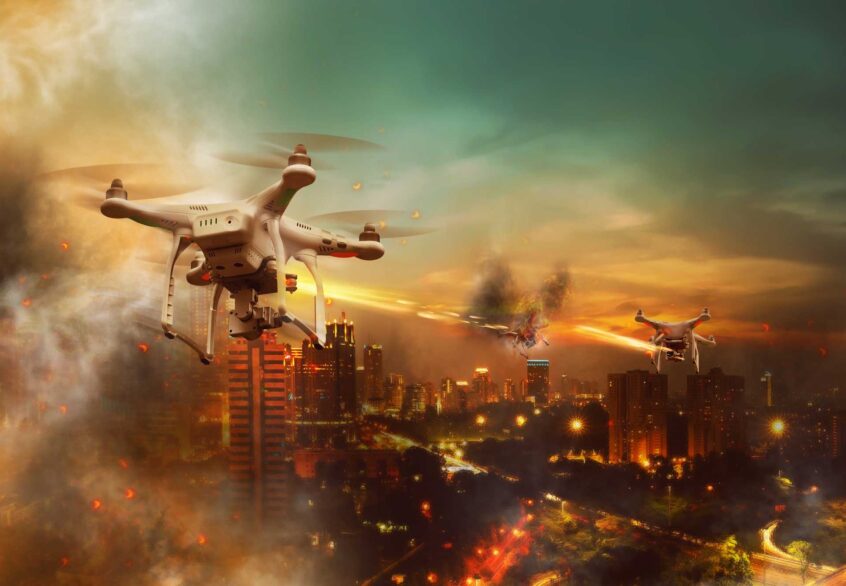Israel Drone Swarm: Human Rights Watch is Running a Campaign Called Stop Killer Robots

Elon Musk has made the call. He has probably been the most vocal in declaring the threat of AI to humanity.
Musk’s statements now seem to be more than just attention seeking.
In October of 2020, JP VERITAS recently linked to a Guardian article about the real threat of AI – “Machines Set Loose to Slaughter”.
The Guardian article raised concerns over the potential for machines to execute massive and horrific killings.
There is a concern that the machines guided by AI operating in war scenarios are likely to commit war crimes. Many experts claim it is impossible to program AI to make right decisions in a war landscape where situations are practically infinitely unpredictable.
The Guardian article states: A robust network of NGOs has successfully urged the UN to convene member states to agree to a ban on killer robots and other weapons that can act on their own, without direct human control, to destroy a target (also known as lethal autonomous weapon systems, or Laws). And while there has been debate about the definition of such technology, we can all imagine some particularly terrifying kinds of weapons that all states should agree never to make or deploy.
The Technology is Here – The Israelis Have Recently Used Drone Swarms
Israel has recently utilized drone swarm technology to pursue their enemies in a violent, deadly exchange in May. As The Sun reports, “Hamas began firing rockets into Israel after protests by Palestinians in May, prompting an 11 day conflict in which 256 people were killed in Gaza and 13 in Israel.”

The swarm of drones is a single-networked entity that is not controlled by an individual. Satellites, reconnaissance drones, aerial vehicles, and intelligence captured by land units feed the the swarm. Algorithms use this data to identify strategic strike points.
How the drone swarms were specifically used against the Hamas terrorists has not been confirmed by the Israel Defense Forces.
Human Rights Watch is running a campaign called Stop Killer Robots.
“There are serious doubts that fully autonomous weapons would be capable of meeting international humanitarian law standards,” it says.
These include “the rules of distinction, proportionality, and military necessity, while they would threaten the fundamental right to life and principle of human dignity”.



